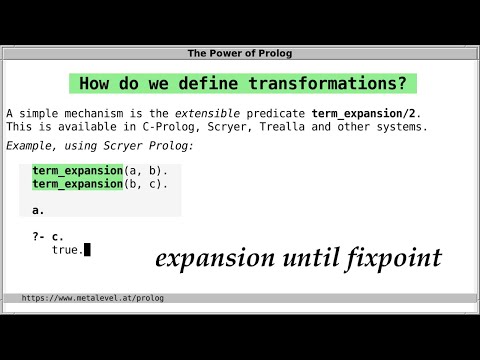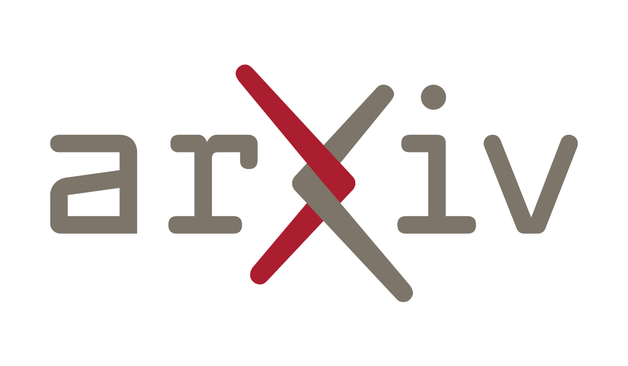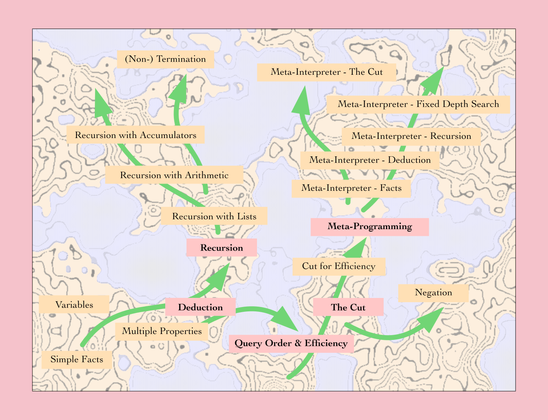https://dyna.org/ #Dyna #MachineLearning #LogicProgramming #Innovation #HackerNews #ngated
https://dyna.org/ #Dyna #MachineLearning #LogicProgramming #Innovation #HackerNews #ngated
one day some frontend dev will replace react diff with unification and just like that millions of devs will be doing prolog without knowing

Macros in Prolog: Term and Goal Expansion
RE: https://bsky.app/profile/did:plc:wge2pxx433rrmrhufniwht4i/post/3lvukuxkvok2z
Extended Dependency Structures and their Formal Interpretation ∗

Prolog as a Querying Language for MongoDB
Today's database systems have shown to be capable of supporting AI applications that demand a lot of data processing. To this end, these systems incorporate powerful querying languages that go far beyond the mere retrieval of data, and provide sophisticated facilities for data processing as well. In the case of SQL, the language has been even demonstrated to be Turing-complete in some implementations of the language. In the area of NoSQL databases, a widely adopted one nowadays is the MongoDB database. Queries in MongoDB databases are represented as sequential stages within an aggregation pipeline where each stage defines a transformation of the input data, and passes the transformed data to the next stage. But aggregation queries tend to become rather large for more complex computational problems, lack organization into re-usable pieces, and are thus hard to debug and maintain. We propose a new database querying language called Mongolog which is syntactically a subset of the Prolog language, and we define its operational semantics through translations into aggregation pipelines. To this end, we make use of and extend the formal framework of the MQuery language which characterizes the aggregation framework set-theoretically.
If you didn't enjoy Prolog at university try ...
⭐️ Prolog by Example 🚀
https://www.amazon.com/dp/B0BTQ7P69H/
* small example-led chapters
* minimal jargon
* focus on concepts, not language
* demystifies topics like negation, the cut and meta-programming
The map summarises the learning journey from basics to meta-programming.

